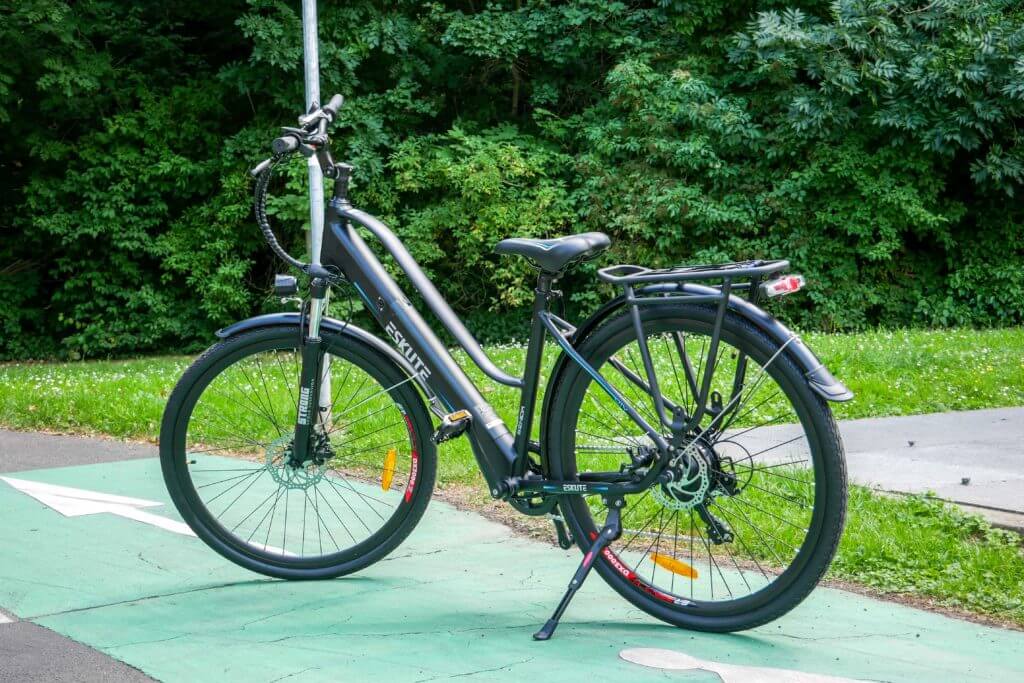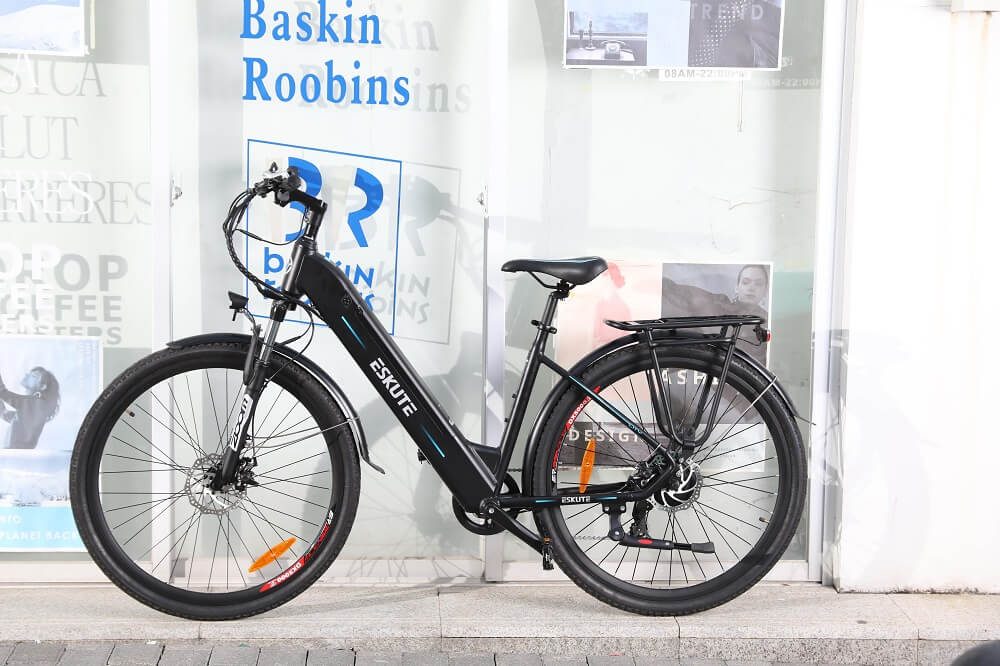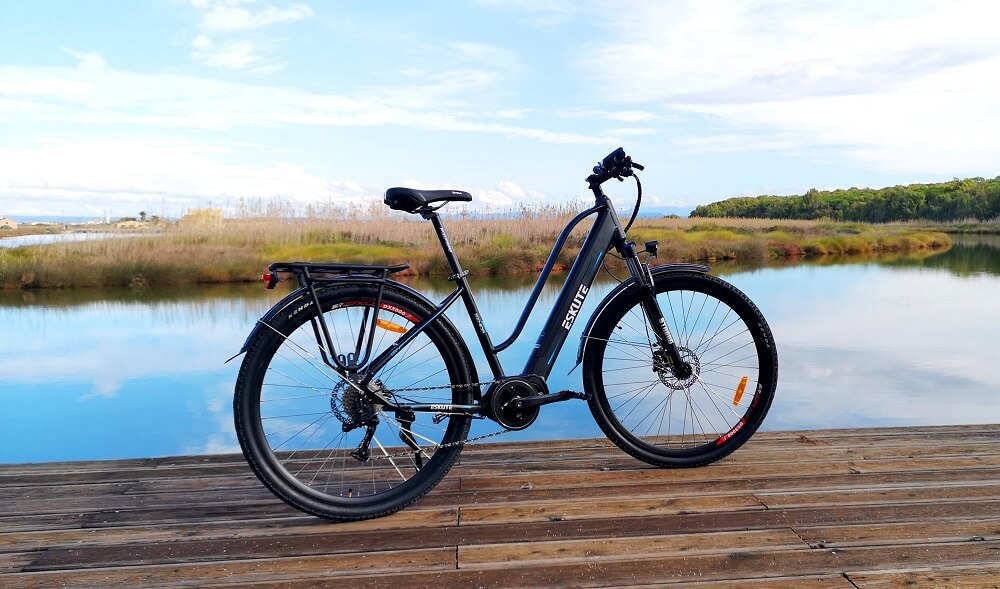Navigation
There has been an increasing interest in electric bikes in the last decade. And as the world pays more attention to the environmental impact of carbon emissions, e-bikes will become even more popular as a greener alternative.
However, many still ask questions concerning e-bikes and their usage; even ebike riders also have some doubts about the legal aspects of riding an electric bike in the UK.
"What are the electric bike laws in the UK?"
"Must you have a license before riding e-bikes?"
"Are the regulations for e-bikes different from those of a regular bike?"
"Do the electric bike laws mandate the usage of helmets?"
"How fast can you go on e-bikes?"
...
These are some of the questions we'll answer in this article.
Note that while we still use the same laws on electric bikes, that may change in the future, now that we've left the EU. So what is the important electric bike UK law you should learn in 2022? But first, let's study the definition of the e-bike again.
What is an e-bike?
An electric bike is a standard bike with a battery-powered pedal-assist feature. This feature is activated when you pedal and, in some cycles, through a throttle. When you pedal a bike with a pedal-assist, it engages a motor that boosts your cycling power.
This boosts from the bike's motor can assist while cycling over hilly areas so that you don't ride just on your own steam. A result is that it becomes more challenging to lose your breath as you cycle.
What are the benefits of e-bikes?
Improved physical health
Research has shown that people who ride bikes with electric motor assist experience almost as much exercise as people who ride mountain bikes. However, one good thing is that most don't feel like they've undergone a strenuous workout each time.
Easier to ride
The pedal assistant feature of the e-bike motor helps you determine how much assistance you get while riding, which is highly beneficial for climbing hills and rough terrains. It makes it easier to cover more miles as a rider. That's one advantage of the e-bike's pedal power.
Better mental health
When cyclers engage in physical activity using electric bikes, they benefit from improving their mental health. When you go cycling, you experience different sceneries and enjoy the fresh air. These all help improve mood, reduce stress, and result in more restful sleep. Good sleep increases productivity.

Would I need a license to ride my e-bike?
There's no need for any license before riding your e-bike, either in the EU or the UK. The only requirement is that the e-bike is legal and conforms to standard regulations. We'll discuss these regulations in the subsequent section.
If your e-bike doesn't meet these specifications, you must register the bike with the DVLA. We have more information on that below.
Regulations for riding an e-bike in the UK
Europe and the UK have the same regulations on riding an e-bike. They are as follows;
- The bike must have pedals, and a rider should be able to propel the bike with the pedals.
- The bike's electric motor must have a maximum power output rating of 250Wh
- The bike only has a pedal-assist function — it can only have a throttle for a maximum speed equal to a walking pace.
- The motor must stop running once you attain a velocity over 25 km/h (15.5mph). Of course, you can pedal as fast as once the motor cuts off.
- You must be at least 14 years old to ride an e-bike
- It's recommended that you use a helmet, but it's not compulsory.
- You ride anywhere within the United Kingdom as long as that location allows the use of non-assisted bicycles.
What are the ebike laws in Northern Ireland?
Northern Ireland had previously operated on rules different from the EU and UK. This year, however, Northern Ireland has aligned with both of them. Once, you needed a moped license before riding e-bikes in the region. You also need to register and insure your bike and tax it. While you had to tax your bike, you didn't have to pay anything.
Other EAPC regulations include
You must use an appropriate motorcycle helmet
You must display the mark of registration on the back of the e-bike
You couldn't ride your electric bicycle on pavements or cycle paths.
The change in regulations now means you can ride anywhere within the UK and EU on your bike, confident that you're not flouting any laws.
Who sets and regulates the e-bike laws in the UK?
The government sets and interprets the laws. Naturally, the government has a special designation for an electric bike that no one else ever uses. The official name for an electric bike is "Electrically Assisted Pedal Cycle", EAPC for short. You can read more on EAPC regulations on their official website.
There are different classifications of road vehicles in the UK, and EAPC is one of them. Other motor vehicle classifications are:
Car: this class includes passenger vehicles with up to 16 seats. Vehicles in this category are taxis, cars, trailers, minibuses, etc.
LGV: this category includes delivery vans and commercial vehicles with two rear wheels but without side guards. LGV is short for Light Goods Vehicle, and they can weigh up to 3.5 tonnes.
OGV1: vehicles in the Ordinary Goods Vehicle 1 category weigh over 3.5 tonnes. This class has box vans, large vans, medium-sized trucks, and four rear wheels. Interestingly, road rollers and tractors are also in this category.
OGV2: here, you find the big ones. Ordinary Goods Vehicle 2 includes trucks with four axles or more and articulated vehicles.
PSV: Public Service vehicle includes coaches that weigh over 3.5 tonnes, buses, and other public transport vehicles. Usually having more than sixteen seats.
How can I verify that my e-bike is legal and doesn't require a license in the UK?
Most electric bikes come with a sticker or plate that shows all the legal information required. Just look for the CE conformity mark, which assures you that it's been passed fit for the road.
The conformity assures that it has passed all relevant tests.
You'll find information on the motor's manufacturer and the motor's power output. You should also find either the bike's maximum speed or the battery voltage.

What if it doesn't meet the regulations?
Any electric bike that doesn't meet the standards for e-bikes is classified as a moped, motorcycle, or speed pedelec. This category has to be registered, and the owners pay taxes regularly. You must also have a driver's license and a helmet before riding.
If any bike doesn't meet these regulations, it is classed as a motorcycle, moped, or speed pedelecs. It will then need to be registered and taxed. You'll need a driving license and a crash helmet for these.
What if I wish to own a more powerful electric bike?
Many countries in the EU have a particular category of electric bikes called "speed Pedelecs". These have a maximum power output in their motor input that speeds up to 45 kilometres per hour (28mph).
That is because the motor produces more torque on its full speed throttle. However, such an e-bike that provides higher speeds must conform to the government's strict regulations.
The DVLA must also register such bikes. Any e-bike that doesn't conform to the EAPC standard must be registered with the DVLA. All electric bikes that don't meet the present UK laws on EAPC and even some "Twist and Go" bikes require type approval.
The UK and EU laws treat them the same way. In addition to type approval, the bike is insured, taxed, and has an MOT.
As a rider, you must have appropriate training and license. You must also wear a helmet that meets the required safety rules, among other things. Your vehicle must also have a number plate.
Some people believe that changing the electric bicycle laws to allow electric bikes to provide electric assistance to 20mph would prevent people from changing their bikes illegally to move faster.
What if it doesn't meet the regulations?
Any electric bike that doesn't meet the standards for e-bikes is classified as a moped, motorcycle, or speed pedelec. Electric bikes in this category have to be registered, and the owners pay taxes regularly. You must also have a driver's license and a helmet before riding.
What class do "twist and go" throttle e-bikes belong to?
It is complicated, but we'll explain. On January 1, 2016, new regulations stated that EAPCs could only have throttles that assist the rider achieve a maximum velocity of 6 km/h (3.7 mph) when the rider isn't pedalling.
It refers to the starting assistance or working assistance only. The motor must cut off if you're rolling (but not pedalling) on your e-bike, and your velocity increases beyond 6km/h.
However, cycling while applying the throttle can assist up to 25km/h (15.5mph). If you got your e-bike before January 1, 2016, don't fret; e-bikes sold before this date still fall in the EAPC category and are considered legal.
Also, if you wish to purchase a newer e-bike model with a "twist and go" throttle, our Netuno and Polluno e-bikes are perfect for you. Though they don't come with such a throttle, you can easily modify them to operate with the "twist and go".

Are there provisions for off-road e-bike riding?
Specific electric bikes provide off-road riding assistance. Such e-bikes have motor power to travel faster than 25km/h. To activate this, you flick a switch, and the motor will provide power in increased capacity. Such bikes are, however, not EAPC compliant for on-road use.
Do I need car driving licence to ride an electric bike in England?
An electric bike that meets the EAPC standards doesn't require its rider to have a driving licence. So it doesn't matter if you have a car driving license or not. Check above to find out more about e-bike laws.
What penalties could I face for riding an electric bike in the UK without a license?
So long as your electric bike complies with the EAPC specifications, you're not at risk of being penalised for any misconduct. However, suppose your bike is illegal or doesn't meet the UK laws on electrically assisted pedal cycles. In that case, you may be prosecuted for riding an electric bike without license, insurance, or even exceeding the speed limit. Such misconduct could get points on your license or even a fine.
Any fees should I pay for riding an electric bike on the road?
You don't have to pay any fee for riding electric bikes in the UK if it meets the EAPC rules. These same rules place no Vehicle Excise Duty (VED) on electric bikes.
What are the European rules for riding an e-bike?
The UK and EU currently operate the same laws on electric bikes. It began in 2015 as the UK aligned with the EU law EN15194. The laws on speed pedelecs, however, vary for different countries.
A general implication is that, unlike the United Kingdom, these countries recognise speed pedelecs as different from mopeds.
Also, most EU countries legally allow children under the age of 14 to ride e-bikes.

Conclusion
We're sure now that you've got a grip of how different laws and rules apply to e-bikes depending on their specifications. You must have a better understanding about how these rules apply to your bike, both in the EU and UK.
However, just like many legal issues, it's not always as simple as discussed here. There's nothing to fret about as long as your bike meets the UK law on e-bikes, which we can guarantee at ESKUTE.
If you prefer your electric bike to have more motor power to help you travel faster than the current legal limit, you have to register the bicycle with the DVLA. If you don't, you may only enjoy the increased motor power for a while before it starts costing you.
It could begin with points on your licence, then it's fines, and finally, it could even cost you your electric bicycle. While it's almost implausible to reach such an extent, it's also better that you avoid such risks.











9 comments
Alastair Dobell
Those who are calling for an increase in permitted speed for EAPC compliant ebikes should remember that this class of ‘vehicle’ enjoys a rather unique position in that it is classed as a pedal cycle and not as a mechanically propelled vehicle. As such, an EAPC can be ridden anywhere a pedal cycle can legally go, for example cycle paths and shared use foot and cycle paths. Put simply, there is not the same degree of separation between ebikes and pedestrians as there is between moped or motorcycle and pedestrian. Then there is the ability for anyone over 14 years of age to use an EAPC ebike without mandatory training, licence, insurance, registration or the requirement to wear a helmet. Pushing for more powerful and faster ebikes may mean the loss of some or all of the fore mentioned benefits of a fairly relaxed regulatory regime for little tangible reward.
Mervyn
the laws are very backwards the 15,5 mph is pure stupid .when most town toads are 20 mph, i live in Devon so towns are everywhere ,at 15.5 mph its not fun when buses and 18 wheel truck overtake ,it,s out right dangerous,,and should be like the old days of 50cc ,at least a speed of 30 mph when you need to use main roads to get to work in rural areas .most can pedel a push bike at 40 mph so would not make any difference
Martin JONES
I have been a bit confused when looking at sellers on the net demonstrating their latest electric chopper bikes that look really cool the best I have seen. However you can’t ride these without having a bike licence, insurance, MOT etc all of which is because they don’t have pedals!
And under UK law they have to be registered via the DVLA. It is confusing, perhaps in the future the Government may drop this rule in the interest of the environment? There is also the question of speed because those cool electric chopper bikes can go a lot faster than the legal pedal assisted electric bikes.
It seems to me if you have pedals on the bike then it’s fine. What I find annoying is the advertisers/seller’s pushing for you to buy a bike and being a bit cagey about the regulations. This could be a disaster for some people who get drawn in to buying one. You have to be careful and read all the sellers jargon.
I was almost laughing when they said that you can use their bikes around the roads on a caravan site or an old airfield or perhaps an off road track! This is pointless because you can’t use the bike for commuting anywhere because as soon as you get on the road with an electric bike without pedals you are breaking the law! Unless you have a motorbike licence and it’s insured/MOT/taxed.
I do hope they change the law as we are all moving forward into an environmentally modern age within this Technological Revolution we all live in.
Kevin White
Please send me as much info relating to the rules/ regulations regarding epac bycycles. Thanks v
Leave a comment
This site is protected by hCaptcha and the hCaptcha Privacy Policy and Terms of Service apply.